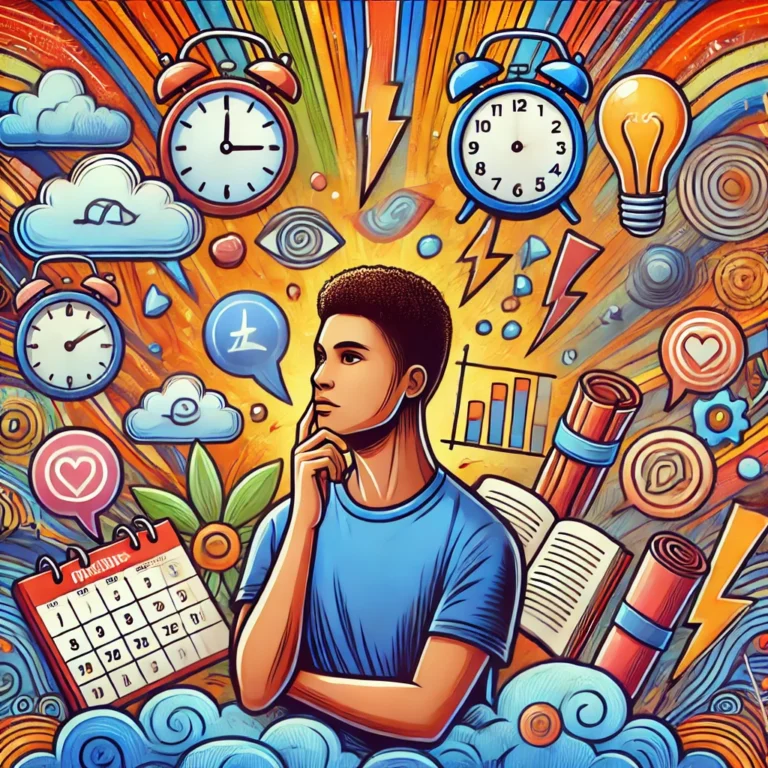Attention deficit hyperactivity disorder (ADHD) is a neurological disorder that has invaded the lives of millions of children, adolescents, and adults worldwide. As awareness and new research grow, the discussion around ADHD is changing to include more inclusive, evidence-based approaches. Here, in this blog, we will discuss recent updates about ADHD in 2024 concerning symptoms, treatments, technology-driven interventions, and lifestyle strategies.
1.What is ADHD?
ADHD affects one’s focus and ability to control impulses, among other things. There are three types of ADHD categories: Inattentive Type: The person has difficulty paying attention, forgets things, and gets distracted easily. Hyperactive-Impulsive Type: Exhibiting movement, excessive motor activity, and acts impulsively. Combined Type: A mix of both inattentive and hyperactive-impulsive symptoms.
Conclusion
The number of diagnoses is on the increase, as of 2024, especially among adults. It is well known that previously, people believed ADHD only afflicted children. Statistics of ADHD diagnosis amongst the people of Canada and the U.S recorded a rise of 20% over two years. 20% increase in ADHD diagnosis amongst women between 25 and 40 years old
2. Application of AI in ADHD Therapy
The use of AI is supporting the ADHD patients in their daily activities. There have been applications that include scheduling and reminders, and tools that help improve their concentration levels. The current advancements in technology are said to provide these patients with personalized treatments, according to a conventional therapy.
3. New Guidelines Regarding ADHD Medications
The newer research even recently has further favored a multi-modal treatment approach. Where medications such as stimulants might include Adderall or Ritalin are used, professionals also complement that with behavioral therapy for sustainability of results. There is also the side of non-stimulant treatment and supplements to avoid dependency on the medication.
4. Role of Nutrition and Lifestyle in ADHD There have been many studies recently in Canada that reveal there is a dietary or lifestyle factor in determining the level of symptom expression in the population. Researchers have found that omega-3 fatty acids, reduced sugar, and physical activity all had significant effects on improved focus and reduced hyperactivity. Parents with children who have ADHD are finding holistic ways to support their child, including mindfulness and yoga practice.
5. ADHD in Schools: New Policies and Supporting Systems
New educational policies have emerged in North America as an initiative towards a friendlier ADHD-friendly school environment. ADHD-inclusive seating, brain breaks, and IEPs are being implemented in schools. Educators are also undergoing training to better identify cases of ADHD without consequences.
6. Symptoms of ADHD: How to Identify Them
Symptoms of ADHD include: Difficulty in maintaining focus in work or conversations and interrupting or acting on impulse frequently. Developing disorganization for tasks or personal belongings. Forgets daily routines.Often, fidgeting and excessive talking If you or someone close to you also experience these symptoms regularly, seek professional assessment.
7. Living with ADHD: How to Cope
1. Routine: Establish routines that will minimize chances of forgetfulness
2. Use Technology: Utilize reminders, apps, and smart home to stay organized.
3. Exercise Regularly: Running, swimming, or some form of yoga can positively channel that excess energy.
4. Mindfulness Practices: You will definitely improve your focus through meditation and breathing exercises.
5. Seek Professional Help: Do not hesitate to consult a psychologist or ADHD specialist who can really offer the right support needed.
Untreated ADHD results in various challenges, which include academic problems, workplace problems, relationship issues, and low self-esteem. It also exposes one to a much higher risk of anxiety, depression, and substance use. Early intervention and appropriate treatment are crucial in reducing risks.
Support Networks for ADHD in 2024
-Reddit and Facebook Groups for Social Support: You can seek peer support via the platform of either or both of these websites.
– Specific ADHD Therapists & Counselors: There are many therapists who work specifically with ADHD patients; they offer a combination of therapy and coaching.
– Educational Materials & Webinars: Websites that are CHADD, Children and Adults with ADHD, offers detailed guides and webinars on the topic.
– Employer Accommodations: There are many employers who offer workplace accommodations to employees who suffer from ADHD.
Conclusion
ADHD is no longer viewed as a disorder that solely affects children. With recent advancements in technology, new treatment guidelines, and a focus on holistic well-being, individuals with ADHD are finding better ways to thrive in school, work, and life. Staying updated on the latest research and being open to innovative treatment methods are essential in managing ADHD effectively.


